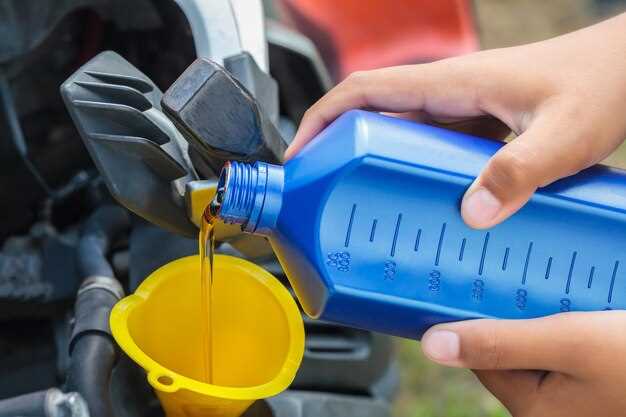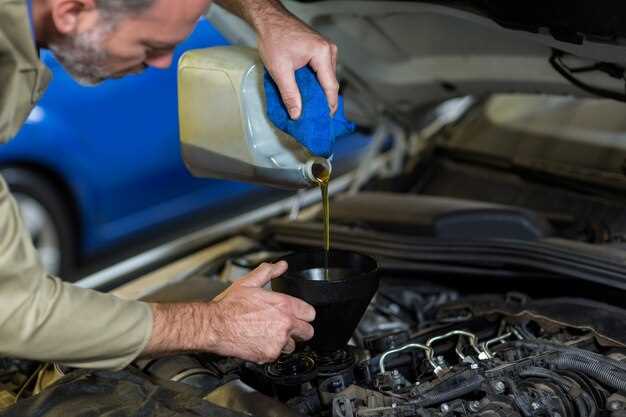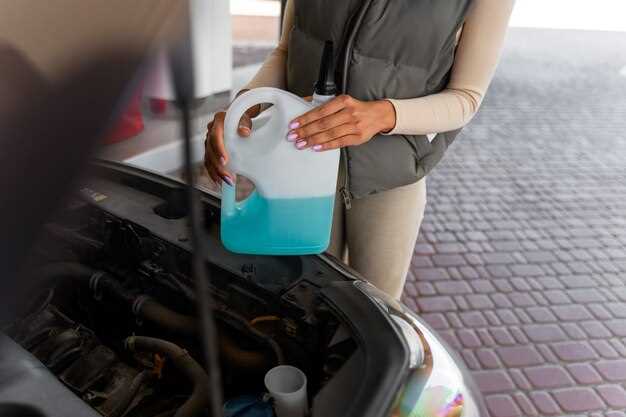
As a car owner, understanding the importance of engine fluids is crucial for maintaining your vehicle’s performance and longevity. Regular checks of these fluids not only ensure that your car operates smoothly but also prevent costly repairs down the line.
The most vital fluid that deserves frequent attention is oil. Engine oil lubricates moving parts, reduces friction, and helps in regulating engine temperature. Neglecting to monitor oil levels or ignoring signs of oil degradation can lead to severe engine damage, compromising both safety and efficiency.
In addition to oil, other fluids play essential roles in the overall functioning of your vehicle. From coolant that prevents overheating to brake fluid that ensures reliable stopping power, each liquid has a specific role that, if overlooked, can lead to significant issues. Therefore, embracing a routine of checking these essential fluids is key to keeping your car in optimal condition.
How to Check Coolant Levels Safely and Accurately
Checking coolant levels is crucial for maintaining your vehicle’s engine performance and preventing overheating. To ensure safety and accuracy during this process, follow these steps:
First, make sure your engine is cool before attempting to check the coolant. This prevents burns from hot antifreeze or steam. Wait at least 30 minutes after turning off the engine.
Next, locate the coolant reservoir, which is usually a translucent plastic tank connected to the radiator. Identify the minimum and maximum level markers on the reservoir to understand the required fluid range.
Carefully open the reservoir cap. If you notice pressure or hissing, wait until it dissipates. This indicates that the engine is still hot, and you should avoid opening it. If the engine is cool, slowly twist the cap open while applying pressure to avoid sudden release of hot air.
Examine the coolant level inside the reservoir. If it’s below the minimum mark, you will need to add more coolant. Ensure that you use the correct type as specified in your owner’s manual.
When adding coolant, use a funnel to avoid spills. Slowly pour the coolant into the reservoir until it reaches the maximum level. Afterward, replace the cap securely.
Finally, clean any spills immediately to prevent damage to your car’s paint or components. Regularly checking and maintaining proper coolant levels is essential for a healthy engine and optimal performance.
Signs Your Engine Oil Needs to Be Changed

Engine oil plays a crucial role in maintaining your vehicle’s performance. Regular checks are essential to ensure the longevity of your engine. Here are the key signs that indicate it’s time for an oil change.
One of the most noticeable signs is the color and consistency of the oil. Fresh oil appears amber and smooth, while old oil can become dark and gritty. If you notice a drastic change in color or a thick, sludge-like texture, it’s a clear indication that your engine oil is due for a replacement.
Another important sign is the oil level. If you frequently find yourself adding oil to the engine, it might be a signal of leaks or excessive consumption. Checking the dipstick regularly will help you monitor the oil level, and a significant drop suggests that an oil change is necessary.
Strange engine noises can also point to oil issues. If your engine is making knocking, ticking, or other unusual sounds, it may be due to insufficient lubrication caused by old or low oil. Address this promptly to avoid severe engine damage.
Additionally, pay attention to the oil change interval recommended by your vehicle manufacturer. Driving habits and conditions can affect this timeline. If you exceed the recommended mileage or time between oil changes, it’s wise to schedule one even if no other signs are present.
Lastly, if you experience the oil warning light illuminating on your dashboard, don’t ignore it. This indicates that the oil pressure is low, potentially resulting from old oil. Take action immediately by checking the oil level and considering an oil change to protect your engine’s health.
Understanding the Importance of Fluid Maintenance for Longevity

Regular fluid maintenance is crucial for the overall health and longevity of a vehicle. Among the various fluids that require attention, engine oil and coolant play significant roles in ensuring optimal performance and durability. Engine oil lubricates the moving parts of the engine, reducing friction and preventing wear. Over time, oil can break down, losing its effectiveness and potentially leading to engine damage.
Coolant, on the other hand, regulates the engine’s temperature, preventing overheating and maintaining an efficient operating range. A proper coolant level ensures that the engine can dissipate heat effectively, which is essential for preventing thermal stress and associated failures. Neglecting coolant maintenance can result in severe engine damage due to overheating.
Monitoring and replacing these fluids as required not only enhances the vehicle’s performance but also extends its lifespan. Regular checks can help identify leaks or contamination early, preventing minor issues from escalating into costly repairs. By prioritizing fluid maintenance, car owners can ensure a smooth and reliable driving experience while safeguarding their investment in the vehicle.



